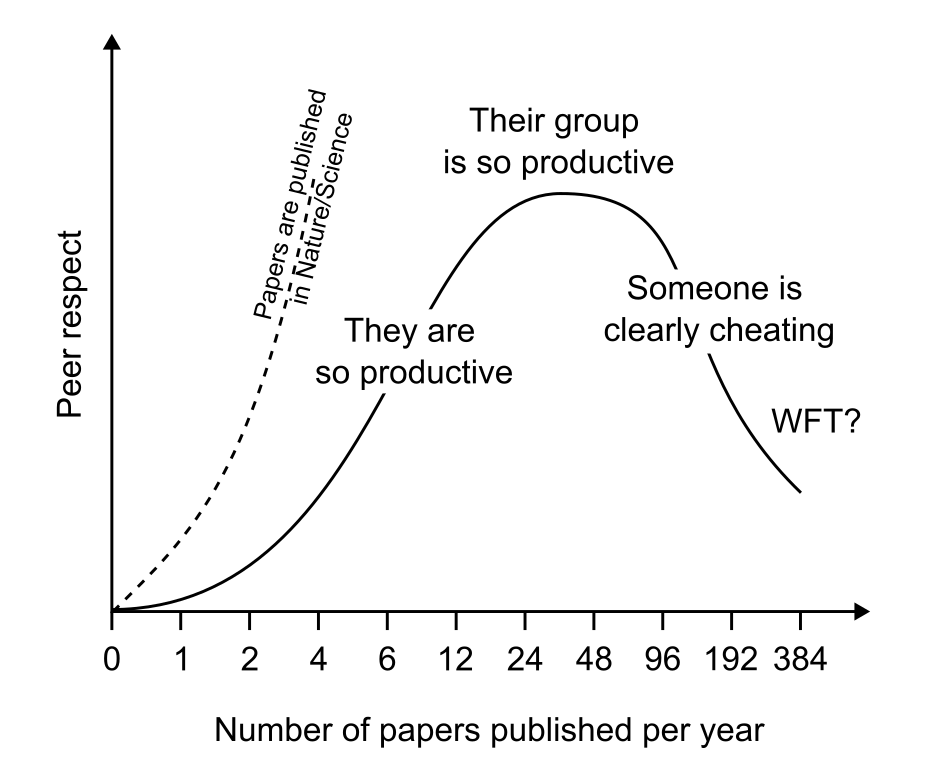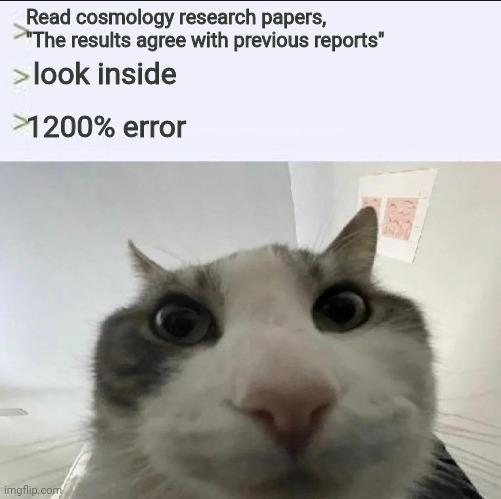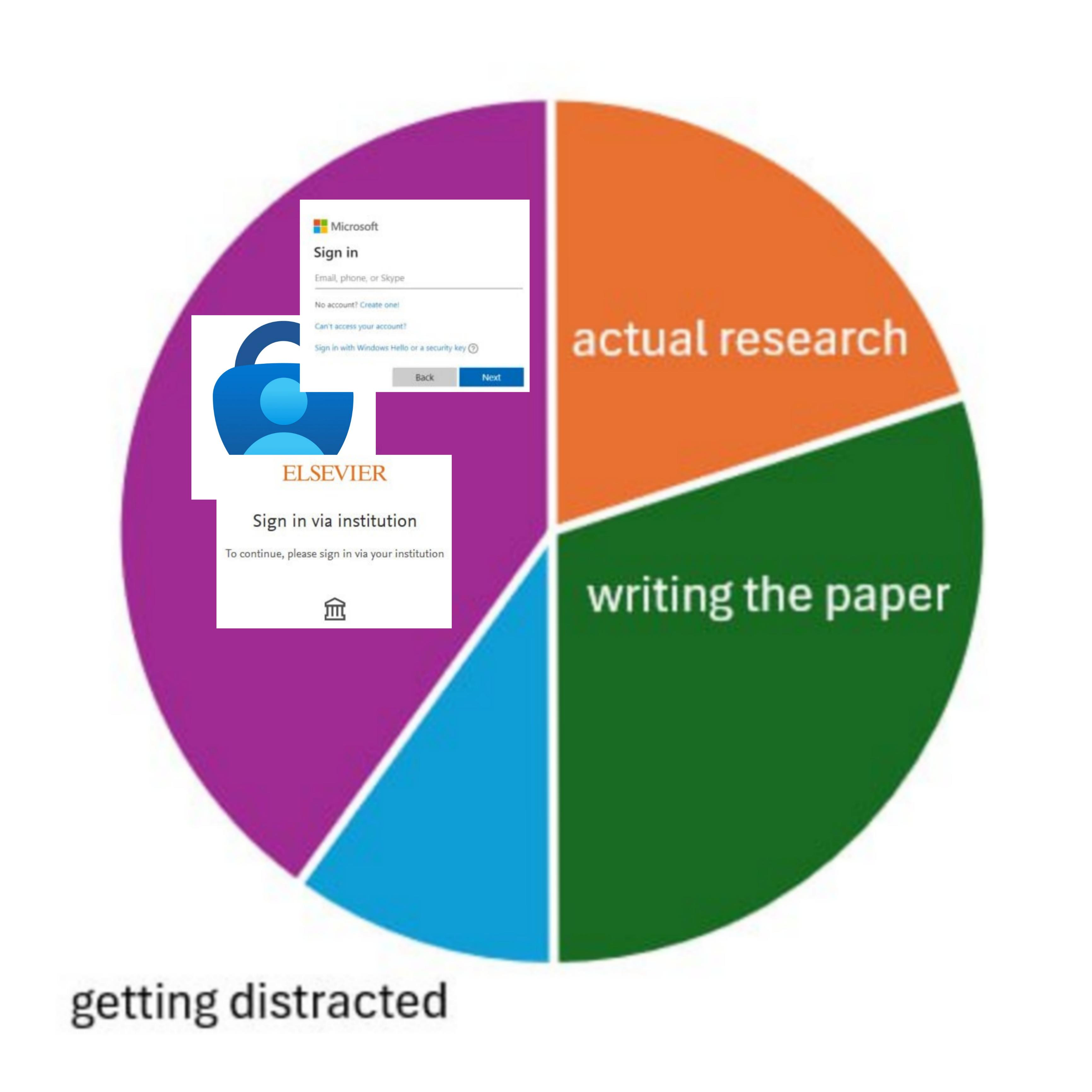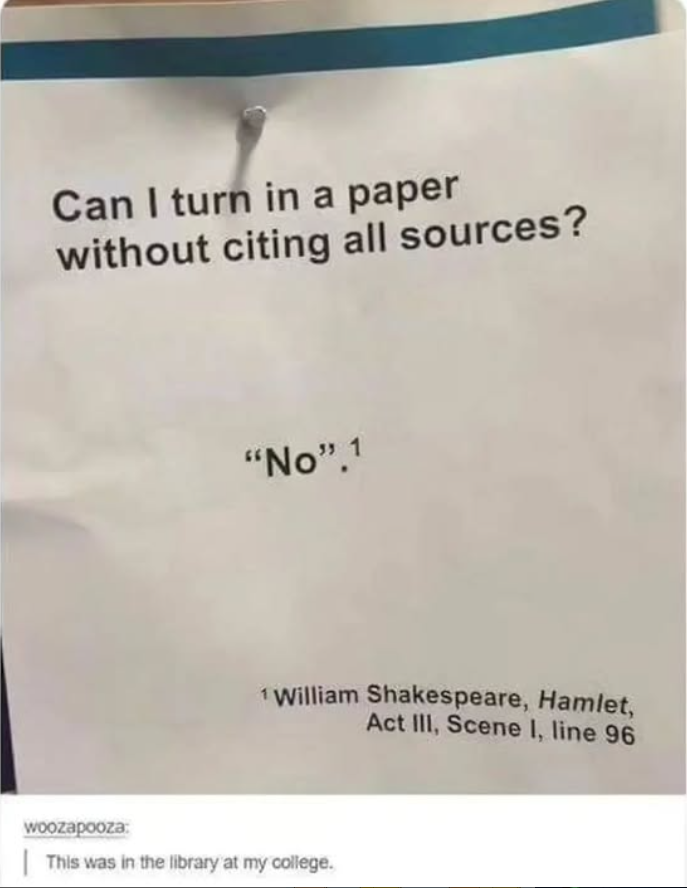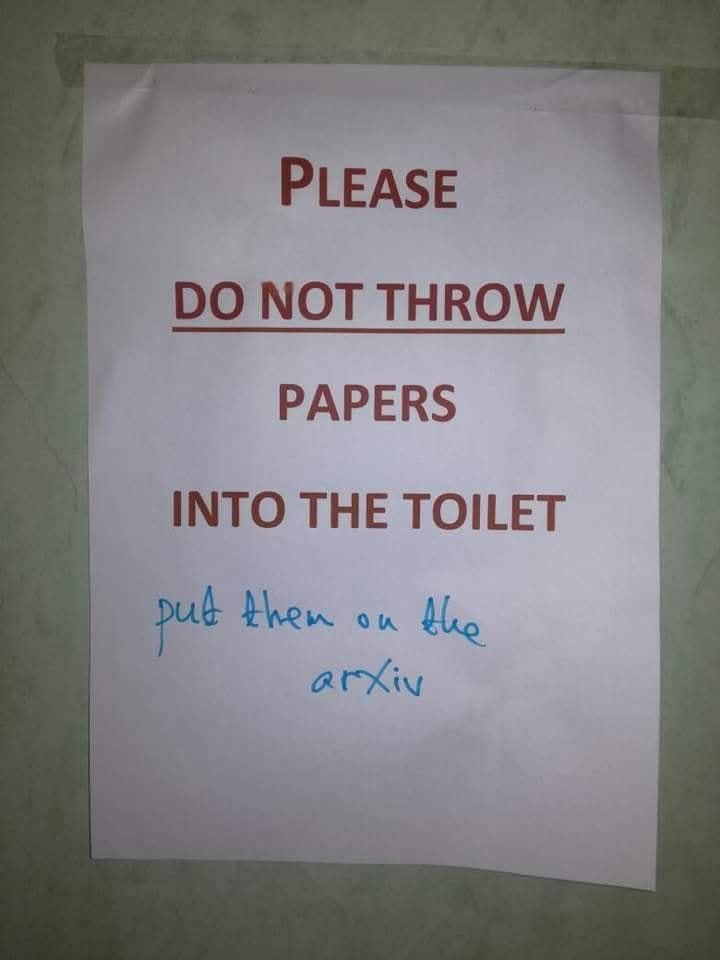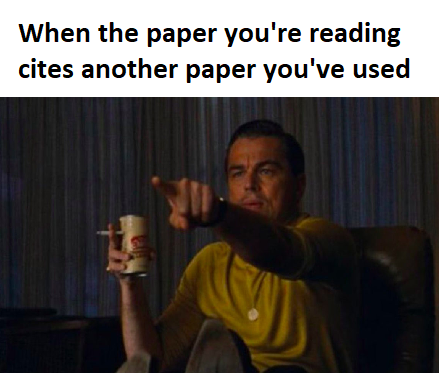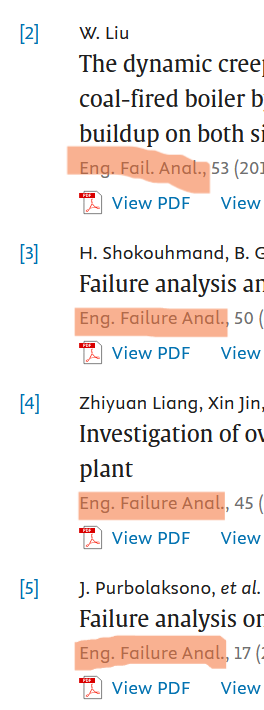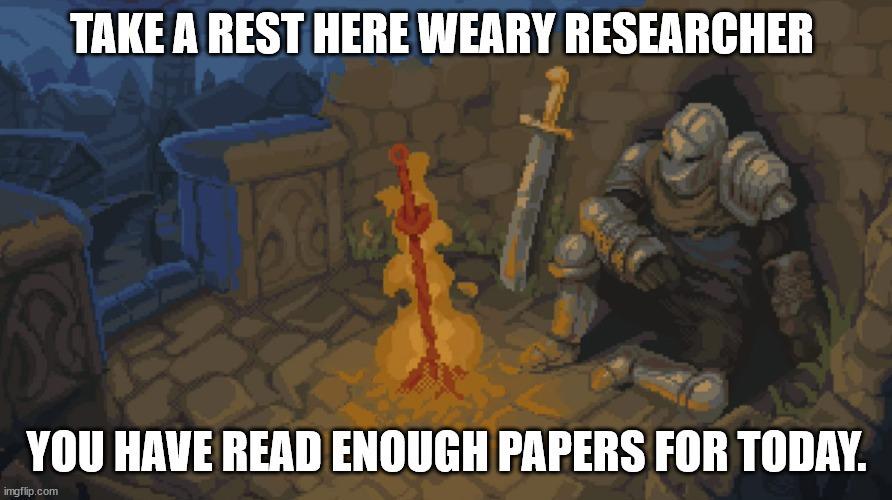The irony is just *chef's kiss*! This professor's response demonstrates academic citation in its purest form. Student asks if they can skip citing sources, and gets hit with a "No" that's meticulously cited to Shakespeare's Hamlet. It's the academic equivalent of saying "I'm gonna demonstrate proper citation while shutting down your attempt to avoid it." The citation itself is completely fabricated, by the way - there's no "No" in Hamlet Act III, Scene I, line 96. That's the professor's subtle way of saying "I can make up sources too, but unlike you, I'm actually showing you how it's done." Pure academic savagery!


 Academia
Academia
 Ai
Ai
 Astronomy
Astronomy
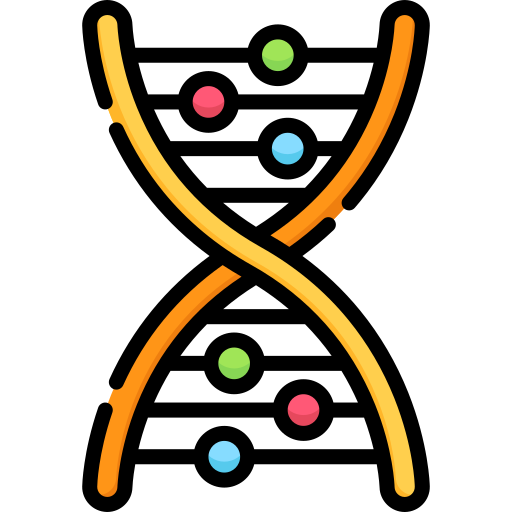 Biology
Biology
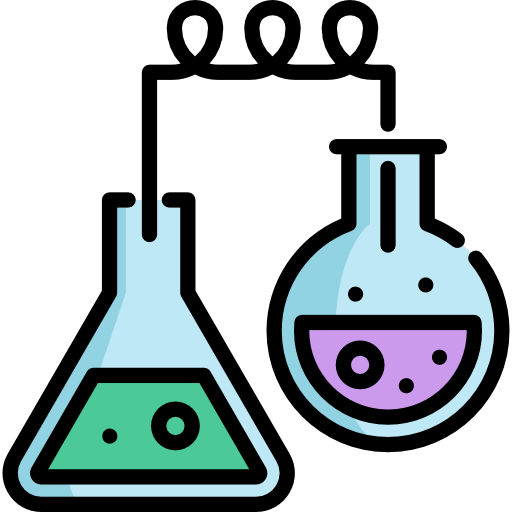 Chemistry
Chemistry
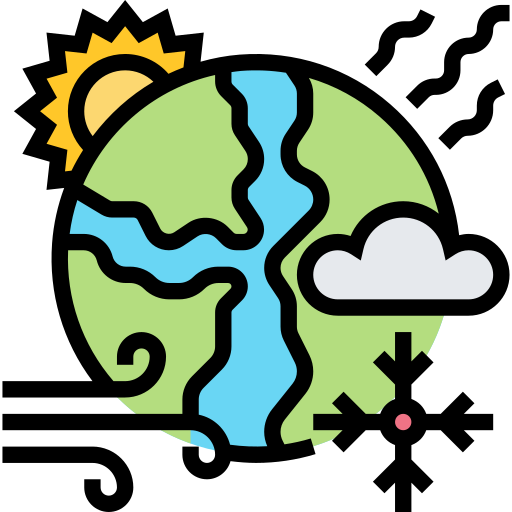 Climate
Climate
 Conspiracy
Conspiracy
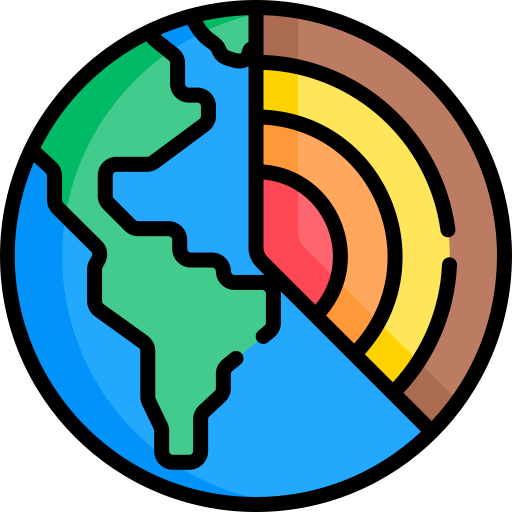 Earth-science
Earth-science
 Engineering
Engineering
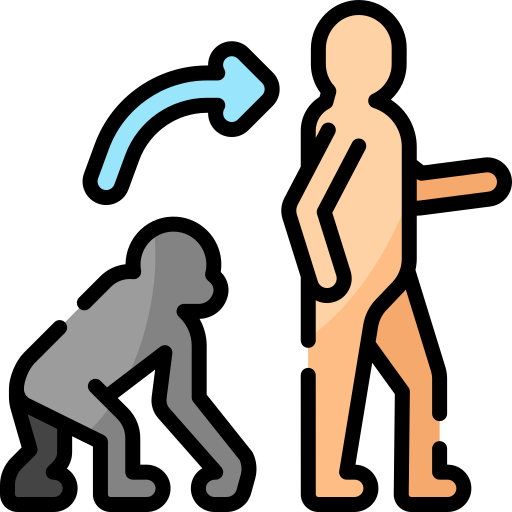 Evolution
Evolution
 Geology
Geology

